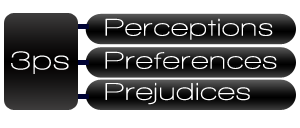Getting Fired? You Can Still Win!
 It is true that many professionals are losing their job. Hopefully it will not happen to you. But if it does, you ultimate goal is to be prepared and be professional. Losing ones job does happen. Have your bases covered. This post will show you how.
It is true that many professionals are losing their job. Hopefully it will not happen to you. But if it does, you ultimate goal is to be prepared and be professional. Losing ones job does happen. Have your bases covered. This post will show you how.
_______________________
At some point in your life, you may have to endure the act of “getting fired.” Obviously, there is no positive light when this is happening, yet it does happen in the world of sales. One of the most common reasons has to do with performance. Performance issues happen to sales professionals of all colors and backgrounds. They can be particularly vexing for the Black sales professional because the stigma that getting fired carries coupled with preference and prejudice issues can severely limit hiring opportunities.
You may find a few articles and publication that talk about what happens when you get fired. Most of them make sure to mention that for a sales professional, this does not have to be a “death sentence.” Most people, sales professionals included, associate their livelihood with their identity, and can be devastated if they are terminated. Additionally, changes in your relationships with co-workers, many of which you may classify as friends, can be just as shocking. This is especially true with the suddenness of a sales termination.
There is no way to ‘get fired’ gracefully as you have are not in control. Your reactions to the activity can be calculated and professional if you follow some of the suggestions below.
Prepare for the Future
This does not have to be a “death sentence”, yet it is a separation by any terminology. You should always be prepared no matter how well you are doing in the job. Since losing your job can happen for of a number of reasons, including the company ceasing to do business, you should have this plan in effect even if you are doing well.
Here are the items you should focus on:
- Your Sales Contacts – Always have your prospect contact list duplicated on some type of accessible media. Many sales professionals use a company issued phone, PDA, and computer. Your contact’s information is on those devices, and your ability to recreate that information is limited once you are separated from it. You have worked years to put it together, take this precaution. As a sales professional this is ultra-important.
- Key Contact Data - Have [your] Customer Profiles of your key clients up to date, and stored where you can access it—as discussed in(Black Sales Journal 1/20 Deepening Your Customer Relationships Part II). There are many that believe that client data such as this is company property. I believe that when I have achieved the relationship that gives me personal access to client particulars about their family and social data, that it is my personal property based on my ability to be in the position to get the information in the first place. A customer who has allowed you to be a “business friend” has not given you clearance to share his wife’s name and their personal particulars with the new sales professional who is left there to service the account. It is yours, and it would be wrong to let that information go to someone without that status.
- Have Your Contracts in Hand - Have access to your sales contracts. It is important to have your signed copies in your possession, not in your files at your place of employment. This would include your employment agreement (if you have one), your non-compete agreement, and any non-disclosures that you have signed. This will tell you what you have agreed to do, especially including employment after termination. There is a possibility that some provisions change if you are separated by termination.
- Know Your Rights re Final Payments - Have a copy of your sales compensation plan handy as well. This will advise you of what is done regarding your final commissions/bonus payments if you have some coming. If you have these papers, you don’t leave this most important area up to your former employer.
- Document Your Accomplishments - Keep up-to-date copies of your sales numbers. Your ability to get a job will be based on your ability to show past sales accomplishments. Nothing shows this like the real numbers.
Time For New Opportunities
Now you are armed to seek out new opportunities. If you did what is above, you have the following:
- An idea of your final compensation, and possibly a severance package which will tide you over until you are able to find another sales position.
- Documentation of your sales success. Make sure no account names are showing, as any new employer will be watching to see this evidence of integrity.
- A roster of your key contacts as well as a data sheet on contacts that you consider key enough to have developed Customer Profiles for. Depending on your non-compete specifics, you want the ability to be back in business again at some point in the future.
A couple of notes that you should consider:
- Don’t sign anything without a good legal review if you are in doubt. Don’t be cheap, get legal assistance if necessary.
- In a journal, record all of the events that have to do with your job loss. If you make a decision to contest anything, even your severance agreement, you will have listing of events that will give you instant credibility.
- Leave the physical location ASAP. There is no reason to linger, or be told to leave. If you do the things mentioned here, you won’t need to spend much time trying to figure out how to get your contacts, contracts, and your personal items.
- Be amicable and be cool. The decision is not going to change, so get the “skinny” on what you need to know, and get going, as there is much to be done.
If you are not prepared in this way, you could spend the rest of your sales career trying to get back up to speed. Be careful and judicious with your information. Remember to be smart! Do not find yourself embroiled in legal scrimmaging by doing the right thing.
When it happens, you will appreciate that you have done these particulars.
Your comments are welcome. Jot me a note at Michael.Parker@blacksalesjournal.com.
 July 20, 2015
|
Posted by Admin9!
July 20, 2015
|
Posted by Admin9!
 Categories:
Categories:  Tags:
Tags: 


Your Comments